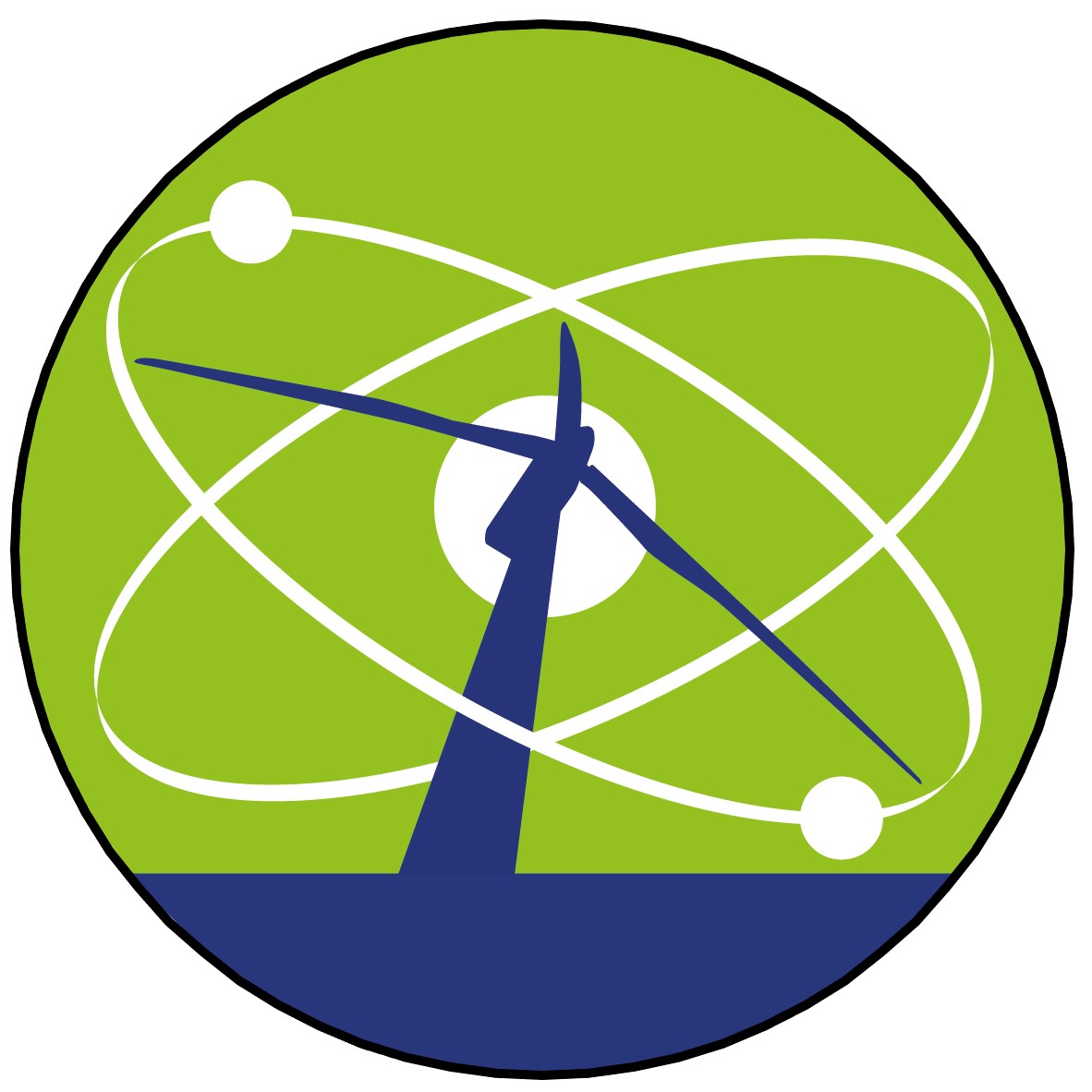Selected Hubs
Project Name: Appalachian Hydrogen Hub
Selectee name: Appalachian Regional Clean Hydrogen Hub (ARCH2)
Location: West Virginia, Ohio, and Pennsylvania
Federal Cost Share: up to $925 million
Prime Contractor: Battelle
Summary: The Appalachian Hydrogen Hub will span across West Virginia, Ohio, and Pennsylvania and leverage the region’s ample access to low-cost natural gas to produce low-cost clean hydrogen and permanently store the associated carbon emissions. The strategic location of the Appalachian Hydrogen Hub and development of hydrogen pipelines, multiple hydrogen fueling stations, and permanent CO2 storage also have the potential to drive down the cost of hydrogen distribution and storage. The Appalachian Hydrogen Hub will help the nation lead in the advancement of the hydrogen economy while reducing emissions and pollution that has long affected air quality in overburdened communities of Appalachia. This Hub will focus on replicable projects to create a pathway for reducing long-term technology costs that can scale greater benefits for the region and beyond. The Hub intends to reduce CO2 emissions by 9 million metric tons per year—equivalent to the annual emissions of more than 2 million gasoline-powered cars.
The Appalachian Hydrogen Hub is anticipated to bring quality job opportunities to workers in coal communities and create more than 21,000 direct jobs – including more than 18,000 in construction and more than 3,000 permanent jobs, helping ensure the Appalachian community benefits from the development and operation of the Hub. To create equitable workforce development opportunities, several H2Hub partners have committed to continuing current or pursuing new workforce and community agreements, in addition to developing new partnerships with colleges and workforce organizations. The Appalachian Hydrogen Hub plans to create a Community Benefits Advisory Board to oversee implementation of the Community Benefits Plan (CBP) and a Community Commitment Fund to ensure the Hub reenergizes the Appalachian region economically, socially, and environmentally.
For more information, email AppalachianH2Hub@hq.doe.gov.
Project Name: Gulf Coast Hydrogen Hub
Selectee name: HyVelocity H2Hub
Location: Texas
Federal Cost Share: up to $1.2 billion
Prime Contractor: HyVelocity, Inc.
Summary: The Gulf Coast Hydrogen Hub will be centered in the Houston region, the traditional energy capital of the United States, and will stretch across the Texas coast. The Gulf Coast Hydrogen Hub will help kickstart the clean hydrogen economy with its plans for large-scale hydrogen production using both natural gas with carbon capture and renewables-powered electrolysis, leveraging the Gulf Coast region’s abundant renewable energy and natural gas supply to drive down the cost of hydrogen—a crucial piece to achieving market liftoff. To help lower the cost of distribution and storage and reach more hydrogen users, the Gulf Coast Hydrogen Hub plans to develop salt cavern hydrogen storage, a large open access hydrogen pipeline, and multiple hydrogen refueling stations. The Gulf Coast Hydrogen Hub will use the hydrogen for fuel cell electric trucks, industrial processes, ammonia, refineries and petrochemicals, and marine fuel (e-Methanol). The introduction of clean hydrogen into these industries is estimated to reduce CO2 emissions by 7 million metric tons per year, equivalent to the annual emissions of more than 1.5 million cars.
The Gulf Coast Hydrogen Hub will create a Community Advisory Board, which includes two councils that will leverage the capabilities of education and community partners, including minority-serving institutions, to support inclusive and equitable workforce development and community investment. The Gulf Coast Hydrogen Hub anticipates creating approximately 45,000 direct jobs—35,000 in construction jobs and 10,000 permanent jobs. A key Justice40 benefit for this Hub is reduction in air pollution, including particulate matter.
For more information, email GulfCoastH2Hub@hq.doe.gov.
Project Name: Heartland Hydrogen Hub
Selectee name: Heartland Hub (HH2H)
Location: Minnesota, North Dakota, and South Dakota
Federal Cost Share: up to $925 million
Prime Contractor: Energy & Environmental Research Center (EERC)
Summary: The Heartland Hydrogen Hub consists of project locations across North Dakota, South Dakota, and Minnesota, with the potential to expand into neighboring states, that will leverage the region’s abundant energy resources to help decarbonize the agricultural sector’s production of fertilizer and decrease the regional cost of clean hydrogen. The Heartland Hydrogen Hub also proposes to use clean hydrogen for power generation in a manner that may catalyze co-firing hydrogen in utility-owned generation across the country. The Hub plans to offer unique opportunities of equity ownership with the Mandan, Hidatsa and Arikara Nation and to local farmers and farmer co-ops through a private sector partnership that will allow local farmers to receive more competitive pricing for clean fertilizer. These initiatives can help reduce roughly 1 million metric tons per year of carbon emissions—roughly equivalent to the annual emissions of 220,000 gasoline-powered cars—while extending profit-sharing and benefits from the expanding hydrogen economy to wider communities, a model with the potential for replication across the Midwest. The Heartland Hydrogen Hub’s use of open access storage and pipeline infrastructure will create a hydrogen network accessible to both current and new hydrogen users.
The Heartland Hydrogen Hub has committed tens of millions of dollars to create an education consortium to oversee career development, workforce training, apprenticeship programs, and K-12 STEM education, which includes several tribal colleges and universities. A goal of the Heartland Hydrogen Hub is to contract hundreds of millions of dollars for businesses owned by women, minorities, disabled veterans, disadvantaged communities, or LGBTQ persons. The Heartland Hydrogen Hub anticipates creating upwards of 3,880 direct jobs–3,067 in construction jobs and 703 permanent jobs. To oversee implementation of the Community Benefits Plan (CBP), this H2Hub intends to create a CBP Advisory Board.
For more information, email HeartlandH2Hub@hq.doe.gov.
Project Name: Mid-Atlantic Hydrogen Hub
Selectee name: Mid-Atlantic Clean Hydrogen Hub (MACH2)
Location: Pennsylvania, Delaware, and New Jersey
Federal Cost Share: up to $750 million
Prime Contractor: Mid-Atlantic Clean Hydrogen Hub, Inc.
Summary: The Mid-Atlantic Hydrogen Hub spans the Delaware River and includes Pennsylvania, Delaware, and southern New Jersey. The Mid-Atlantic Hydrogen Hub will help unlock hydrogen-driven decarbonization in the Mid-Atlantic while repurposing historic oil infrastructure and using existing rights-of-way. The Mid-Atlantic Hydrogen Hub plans to develop renewable hydrogen production facilities from renewables and nuclear electricity using both established and innovative electrolyzer technologies, where it can help reduce costs and drive further technology adoption. It aims to expand hydrogen application to industries including heavy transportation (e.g., trucks, buses, refuse trucks, and street sweepers), manufacturing and industrial process improvements, and combined heat and power, where it can significantly reduce carbon emission by approximately 1 million metric tons per year, which is roughly equivalent to the emissions from 220,000 cars annually. Along with hydrogen production, the Mid-Atlantic Hydrogen Hub plans to expand hydrogen distribution infrastructure, upgrade bus mechanic depots, and develop fueling stations to facilitate hydrogen distribution to more end users. The expansion of hydrogen infrastructure will lower the costs of storage and distribution and ultimately assist with reducing the cost of hydrogen and achieving anticipated emissions reductions.
As part of its labor and workforce commitments to the community, the Mid-Atlantic Hydrogen Hub plans to negotiate Project Labor Agreements for all projects and provide close to $14 million for regional Workforce Development Boards that will serve as partners for community college training and pre-apprenticeships. The Mid-Atlantic Hydrogen Hub was developed in partnership with labor and minority-serving institutions, including the Philadelphia Building Trades and Cheyney University and intends to support apprenticeship and pre-apprenticeship programs, certificated and stackable credentials, and wraparound services that enable training and employment. The Mid-Atlantic Hydrogen Hub anticipates creating 20,800 direct jobs—14,400 in construction jobs and 6,400 permanent jobs. Hub partners have agreed to union neutrality and will abide by good faith negotiations. To overcome barriers for underrepresented groups, this Hub plans to provide an additional $10 million for technical and professional development initiatives, such as an on-site, hands-on hydrogen training program at Cheyney University, the oldest HBCU in the country. Additional benefits include air pollutant reduction and brownfield remediation. To ensure accountability, the Mid-Atlantic Hydrogen Hub plans to create a Community Advisory Board and establish third party verification.
For more information, email MidAtlanticH2Hub@hq.doe.gov.
Project Name: Midwest Hydrogen Hub
Selectee name: Midwest Alliance for Clean Hydrogen (MachH2)
Location: Illinois, Indiana, and Michigan
Federal Cost Share: up to $1 billion
Prime Contractor: MachH2
Summary: The Midwest Hydrogen Hub network spans Illinois, Indiana, and Michigan, with the potential to expand into other Midwestern states. Located in a key U.S. industrial and transportation corridor, the Midwest Hydrogen Hub will enable decarbonization through strategic hydrogen uses including steel and glass production, power generation, refining, heavy-duty transportation, and sustainable aviation fuel. The decarbonization of these sectors will reduce carbon emissions by approximately 3.9 million metric tons per year—equivalent to removing emissions from more than 867,000 gasoline powered cars annually—improving air quality through avoided criteria pollutant emissions. The Midwest Hydrogen Hub plans to produce hydrogen by leveraging diverse and abundant energy sources, including renewable energy, natural gas, and low-cost nuclear energy.
The Midwest Hydrogen Hub will ensure diverse hiring and contracting and create an equitable enterprise development program that expands the benefit and reach of the local hydrogen economy. For example, the Midwest Hydrogen Hub has created specific targets to ensure diverse hiring and contracting, including 40 percent of total subcontracted dollars going to Minority/Disadvantaged Business Enterprises (M/DBEs), roughly $30 million for new startups through an inclusive entrepreneurship program (focusing on M/DBEs), and a target of 45 percent diverse hiring. The H2Hub plans to create a worker education exchange, invest roughly $15 million in wraparound services that enable training and employment, and support project partners to negotiate workforce and community agreements. The Midwest Hydrogen Hub anticipates creating 13,600 direct jobs—12,100 in construction jobs and 1,500 permanent jobs and plans to create a Community Benefits Advisory Working Group in addition to localized advisory councils.
For more information, email MidwestH2Hub@hq.doe.gov.
Project Name: Pacific Northwest Hydrogen Hub
Selectee name: PNWH2 Hub
Location: Washington, Oregon, and Montana
Federal Cost Share: up to $1 billion
Prime Contractor: Pacific Northwest Hydrogen Association
Summary: The Pacific Northwest Hydrogen Hub will span Washington, Oregon, and Montana, and plans to leverage the region’s abundant renewable resources to produce clean hydrogen exclusively via electrolysis. The Pacific Northwest Hydrogen Hub’s vast use of electrolyzers will play a key role in driving down electrolyzer costs, making the technology more accessible to other producers, and reducing the cost of hydrogen production. The Pacific Northwest Hydrogen Hub aims to remove approximately 1.7 million metric tons per year of CO2 emissions—equivalent to removing the emissions from roughly 346,000 gasoline-powered cars annually—through a transition to clean hydrogen across hard-to-decarbonize areas. These hard-to decarbonize areas include heavy duty transportation, where clean hydrogen will help address a key mobile source of nitrous oxide emissions. The Hub’s plan for hydrogen fuel cell vehicle expansion in heavy duty trucking will be carried out in conjunction with the California Hydrogen Hub’s parallel efforts. This will help enable development of a West Coast freight network that addresses refueling gaps and further clean transportation expansion. Other hydrogen uses include agriculture (fertilizer production), industry (generators, peak power, data centers, refineries), and seaports (drayage, cargo handling), where it will serve to decarbonize some of the highest emission drivers in the region.
Founded with unions, environmental groups, and tribal representatives, the Pacific Northwest Hydrogen Hub includes representation from these groups on its planned Community Benefits Plan governing board. The Pacific Northwest Hydrogen Hub has committed to negotiating Project Labor Agreements for all projects over $1 million and investing in joint labor-management/state-registered apprenticeship programs. Workforce commitments include priority hiring programs for former coal industry workers and investing more than $4 million in the Centralia College training center to provide worker training. This Hub notes that attracting, training, and retaining local skilled, qualified, local, and diverse construction and operations workforces begins with leveraging high union density through collaboration with local labor unions and relevant workforce bodies. This H2Hub anticipates creating more than 10,000 direct jobs—8,050 in construction jobs and 350 permanent jobs.
For more information, email PacificNWH2Hub@hq.doe.gov.










